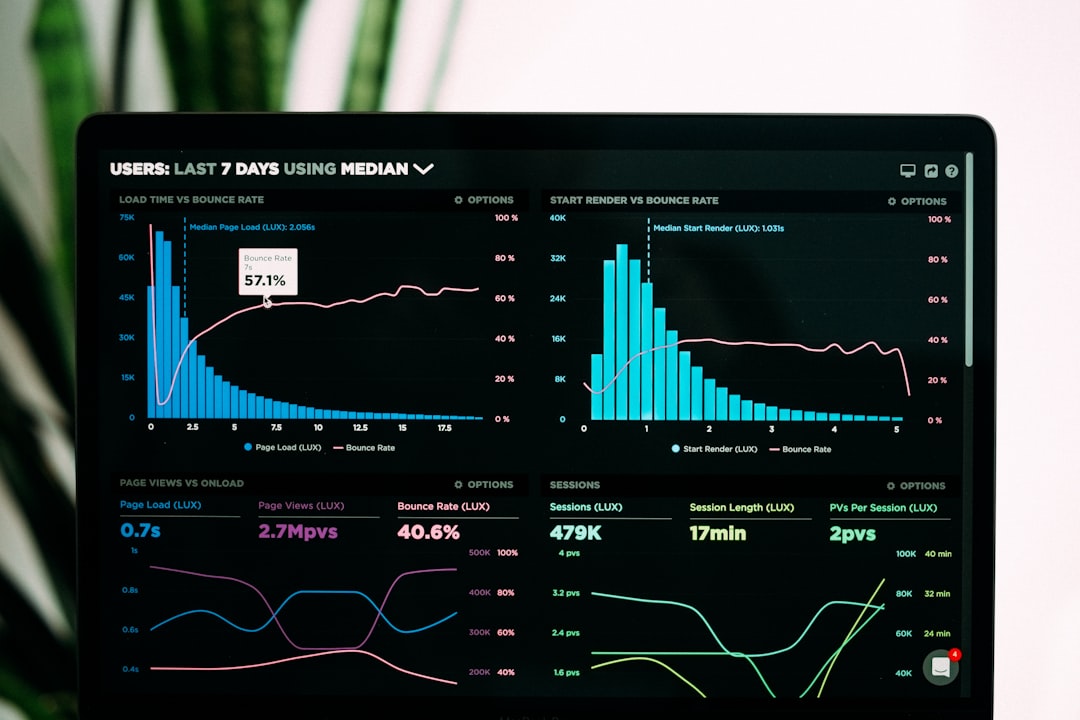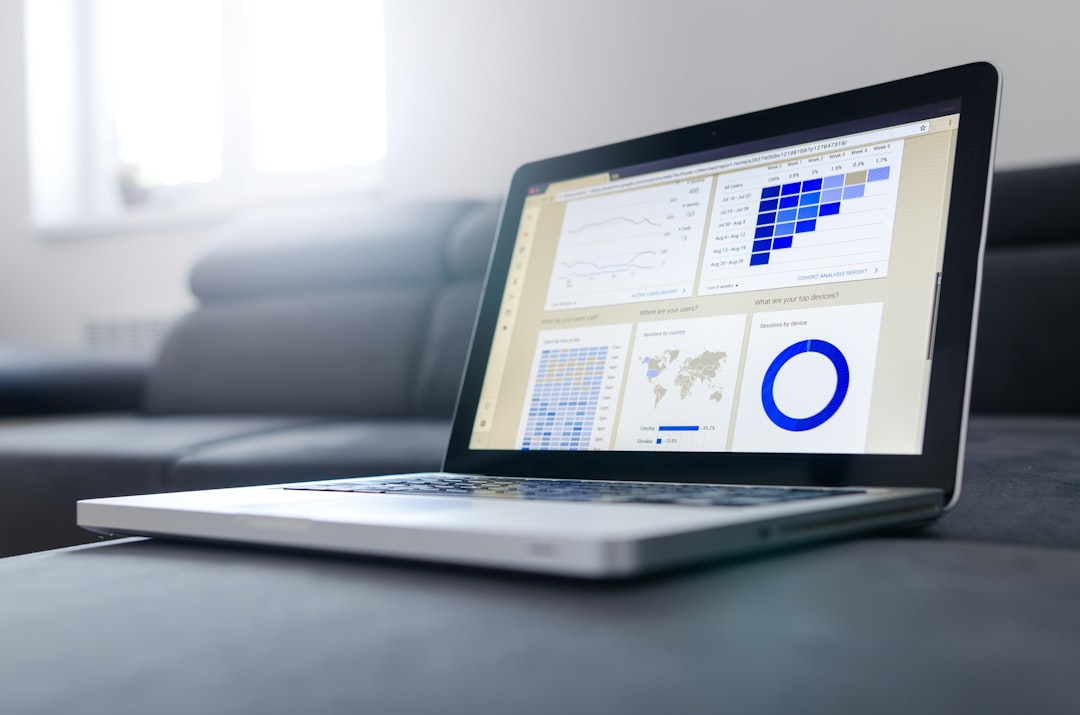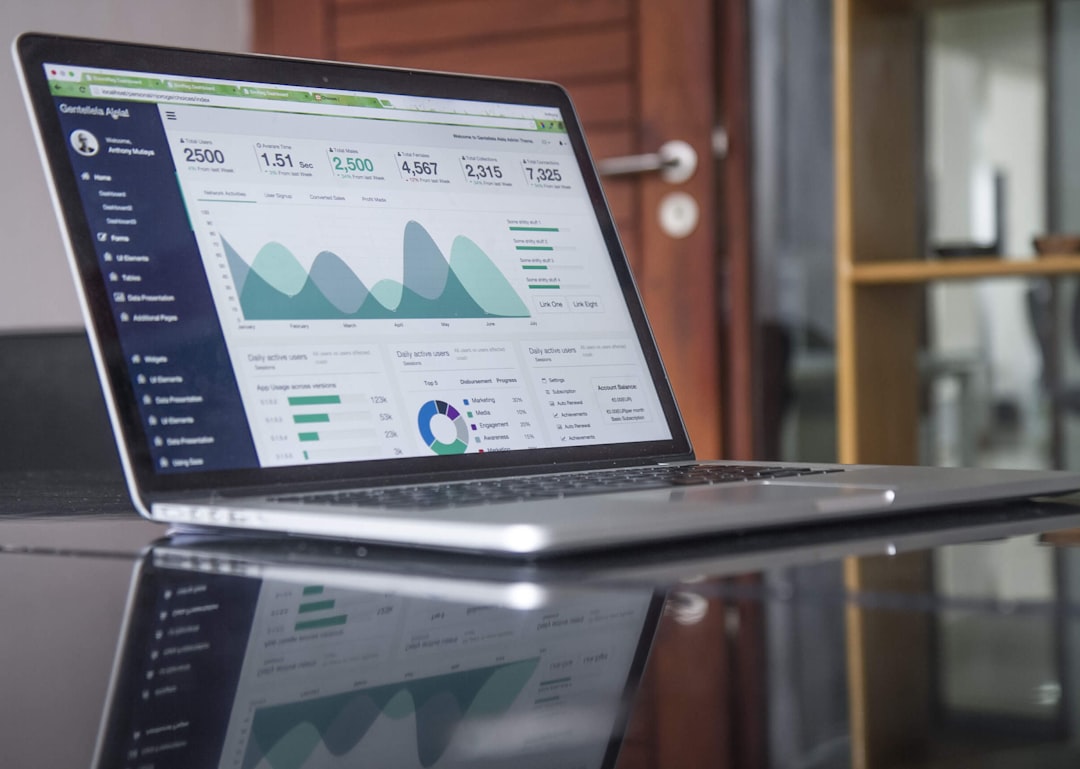Unlock encrypted content
Please enter your SSCE key to initiate on-the-fly decryption.
Decryption key: (Click cancel if you don't have the key)
Copied link to clipboard.
This feature is unavailable for free accounts. Upgrade now and enjoy all Premium benefits.
Go Premium!
This feature is unavailable for free accounts. Upgrade now and enjoy all Premium benefits.
Go Premium!
Please open this page in browser ( Google Chrome or Safari ) to use this feature.
Open In Browser
The Future of Technology: Exploring Data Analytics, Quantum Encryption, and the Internet of Everything.
Random related video for this blog.
Copied share link to clipboard.
In an age where technology evolves at breakneck speed, understanding its implications is essential.
Data Analytics and Its Impact
Data analytics has transformed how businesses operate, driving decisions based on insights derived from vast amounts of data. Companies leverage data analytics to optimize operations, enhance customer experiences, and predict future trends. For instance, retailers use data analytics to understand consumer behavior, tailoring marketing strategies to meet customer preferences effectively. By analyzing purchasing patterns, companies can stock inventory that aligns with consumer demand, reducing waste and maximizing sales. Moreover, the integration of advanced analytics techniques, such as machine learning, allows organizations to uncover hidden patterns within their data. A notable example is Netflix, which utilizes data analytics to recommend shows based on user viewing habits, significantly increasing user engagement and retention. The insights derived from data analytics not only improve operational efficiency but also foster innovation, enabling businesses to develop new products and services that cater to evolving market needs. As we move forward, the role of data analytics will only expand. With the advent of the Internet of Everything (IoE), where everyday devices are interconnected, the volume of data generated will skyrocket. This surge necessitates advanced analytics capabilities to derive meaningful insights from the chaos. Companies that harness the power of data analytics will be better positioned to navigate the complexities of a data-driven world, ensuring sustainable growth and competitive advantage.Quantum Encryption: A New Era of Security
As technology advances, so do the threats to data security. Quantum encryption emerges as a groundbreaking solution to safeguard sensitive information. Unlike traditional encryption methods, which can be vulnerable to increasingly sophisticated attacks, quantum encryption leverages the principles of quantum mechanics to secure data transmission. This method ensures that any attempt to intercept the data alters the quantum state, alerting the senderand receiver of potential breaches. A prominent example of quantum encryption is the development of quantum key distribution (QKD). Organizations like ID Quantique have pioneered QKD systems, allowing secure communication channels that are practically immune to eavesdropping. This technology is particularly vital for sectors that handle sensitive information, such as finance and healthcare, where data integrity is paramount. As quantum computing evolves, the need for quantum encryption will become more pressing. The potential for quantum computers to break traditional encryption methods poses a significant risk to data security. Thus, adopting quantum encryption solutions is not merely a trend but a necessity for organizations that prioritize data protection and wish to future-proof their operations against emerging threats.
Smart Contracts: Revolutionizing Transactions
Smart contracts are another exciting development in the realm of technology, particularly within the blockchain ecosystem. These self-executing contracts with the terms of the agreement directly written into code eliminate the need for intermediaries, streamlining processes and reducing costs. For example, in real estate transactions, smart contracts can automate the transfer of ownership upon the completion of payment, significantly speeding up the process and minimizing the potential for disputes. The implementation of smart contracts extends beyond finance and real estate. In supply chain management, companies can utilize smart contracts to enhance transparency and traceability. By recording every transaction on a blockchain, all parties involved can verify the authenticity of goods, reducing fraud and improving efficiency. A notable case study involves IBM's Food Trust blockchain, which uses smart contracts to trace the journey of food products from farm to table, enhancing consumer trust and safety. As industries continue to adopt blockchain technology, the potential applications of smart contracts will expand. From automating insurance claims to facilitating cross-border payments, smart contracts stand to revolutionize how we approach transactions, making processes more efficient and secure.The Rise of Drones and Futuristic Transportation
Drones are rapidly becoming integral to various sectors, from logistics to agriculture. Their ability to deliver goods quickly and efficiently has led to innovative applications, such as Amazon's Prime Air service, which aims to deliver packages within 30 minutes using unmanned aerial vehicles. This not only enhances customer satisfaction but also reduces the carbon footprint associated with traditional delivery methods. In agriculture, drones are utilized for precision farming, enabling farmers to monitor crop health, optimize irrigation, and enhance yield. By providing real-time data on field conditions, farmers can make informed decisions that lead to more sustainable practices. For example, a study by the University of California demonstrated that using drones for crop monitoring increased yields by 10% while reducing water usage by 20%. The future of transportation is also being shaped by the convergence of drones and autonomous vehicles. Companies like Tesla and Waymo are pioneering self-driving technology, promising a future where transportation is safer and more efficient. As cities become increasingly congested, the integration of drones for last-mile delivery and autonomous vehicles for public transport could alleviate traffic issues, leading to smarter urban planning.Internet of Everything (IoE): Connecting the World
The Internet of Everything (IoE) represents the next phase of connectivity, where not just devices but people, processes, and data are interconnected. This holistic approach enables seamless communication and collaboration across various sectors, resulting in enhanced efficiency and innovation. For instance, in smart cities, IoE applications can optimize traffic management, reduce energy consumption, and improve public safety. A practical example of IoE in action is the integration of smart sensors in urban infrastructure. These sensors can monitor air quality, detect leaks in water systems, and manage waste collection schedules, creating a more sustainable urban environment. Cities like Barcelona have implemented IoE solutions that have resulted in significant cost savings and improved quality of life for residents. As IoE continues to evolve, the implications for businesses and consumers alike are profound. Organizations that embrace IoE technologies will have the opportunity to create new revenue streams, enhance customer engagement, and foster a culture of innovation. However, the challenges of data privacy and security must be addressed to unlock the full potential of IoE, ensuring that the benefits are realized without compromising individual rights.Instant File Synchronization and Backup
In today's fast-paced digital landscape, instant file synchronization and backup solutions are essential for individuals and businesses alike. The ability to access files from multiple devices in real-time ensures that work does not come to a halt due to technical issues. FileLu, for instance, offers a robust platform that allows users to synchronize files seamlessly across devices, enhancing productivity and collaboration. Moreover, the importance of data backup cannot be overstated. With the increasing prevalence of cyber threats and data loss incidents, having a reliable backup solution is critical. FileLu's backup capabilities ensure that users can recover their files swiftly in the event of loss or corruption, providing peace of mind. The platform's support for large file transfers, even for free users, further enhances its appeal as a comprehensive file management solution. As remote work becomes more prevalent, the demand for instant file synchronization and backup solutions will continue to grow. Organizations that invest in these technologies will not only safeguard their data but also empower their teams to work more effectively, regardless of their physical location.Conclusion: Embracing the Future
The convergence of data analytics, quantum encryption, smart contracts, drones, and the Internet of Everything heralds a new era of technological advancement. As these innovations reshape industries, organizations must adapt to stay competitive. Embracing these technologies will not only enhance operational efficiency but also foster innovation and drive sustainable growth. To thrive in this dynamic landscape, businesses must prioritize data security, invest in advanced analytics capabilities, and explore the potential of emerging technologies. By doing so, they will be well-equipped to navigate the complexities of a rapidly changing world, unlocking new opportunities for success.Frequently Asked Questions (FAQs)
Question: What is the Internet of Everything (IoE)? Answer:
The IoE refers to the interconnectedness of devices, people, processes, and data, enabling seamless communication and collaboration.
Question: How does quantum encryption enhance data security? Answer:
Quantum encryption uses quantum mechanics principles to secure data transmission, making it nearly impossible for unauthorized parties to intercept data without detection.
Question: What are smart contracts? Answer:
Smart contracts are self-executing contracts with terms written into code, automating processes and eliminating the need for intermediaries.
Question: How can data analytics benefit businesses? Answer:
Data analytics helps businesses derive insights from data, optimize operations, enhance customer experiences, and predict future trends.
Question: What role do drones play in logistics? Answer:
Drones can deliver goods quickly and efficiently, reducing delivery times and carbon footprints while streamlining logistics processes. For more information on file transfer, secure storage, and backup solutions, visit FileLu.
By Amelia Isabella
Email: [email protected]
Related
Secure Project Management Software with File Sharing, Archiving, and Collaboration...
June 5, 2023
Read More
Revolutionizing File Sharing: Secure, Collaborative, and Accessible with FileLu.
June 6, 2023
Read More
Free Cloud Storage: A Comprehensive Guide to Data Privacy, Nanotechnology,...
June 6, 2023
Read More
FileLu Cloud Storage: Simplifying File Sharing Capabilities for the Digital...
June 6, 2023
Read More
Popular
Latest
The Future of Digital Transformation: Exploring Smart Homes, Efficient File...
November 30, 2025
Read More
Exploring the Benefits of Cloud Storage and Innovative Technologies in...
November 26, 2025
Read More
The Future of Technology: Exploring Biohacking, Space Tourism, and Digital...
November 23, 2025
Read More
The Future of File Sharing: Streamlined Workflows for Photographers and...
November 19, 2025
Read More
Exploring the Intersection of Technology: From Cybersecurity to Augmented Reality...
November 16, 2025
Read More
The Future of File Management: Embracing Edge Computing and Efficient...
November 12, 2025
Read More
The Future of File Sharing: Exploring User-Friendly Solutions and Data...
November 5, 2025
Read More
The Future of Cloud Storage: How FileLu Empowers Creative Professionals...
November 2, 2025
Read More
The Future of Autonomous Technologies: Innovations in Robotics, File Sharing,...
October 29, 2025
Read More
Emerging Technologies Revolutionizing File Management: From Li-Fi to Robust Collaboration...
October 26, 2025
Read More
Emerging Technologies: Exploring the Impact of File Access Auditing, Genetic...
October 19, 2025
Read More
The Future of Data Storage: Exploring Advanced Encryption, Mobile Integration,...
October 5, 2025
Read More
Exploring the Future of Data Management: Security, Efficiency, and Cognitive...
September 28, 2025
Read More
Revolutionizing Data Management: Innovations in Storage, Security, and Sustainable Technology.
September 24, 2025
Read More






















